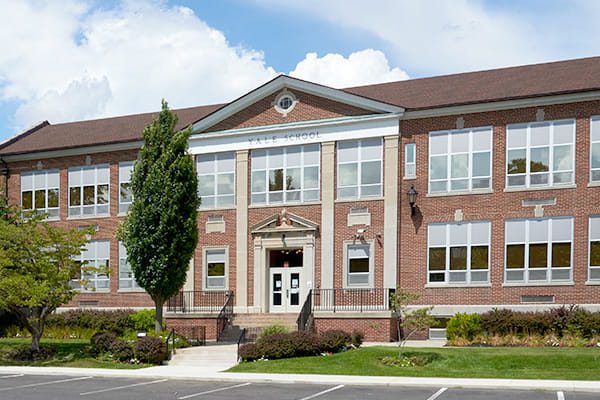How You Can Help Save Temecula Schools for Future Generations
How You Can Help Save Temecula Schools for Future Generations
Blog Article
The Impact of School Environments on Academic Success and Personal Wellness
The college environment considerably influences both scholastic success and personal well-being, incorporating elements such as physical format, class environment, and interpersonal characteristics. The style of academic areas, consisting of natural illumination and ergonomic furniture, can enhance pupils' focus and comfort. The high quality of teacher-student connections and the nature of peer communications play critical functions in cultivating an environment helpful to finding out and psychological support. Comprehending just how these numerous factors interplay to form trainee results raises vital questions regarding optimizing academic setups for holistic development. How can institutions tactically boost these facets to better sustain their students?
Physical Layout and Design
Exactly how does the physical design and style of a school impact scholastic success? The setup and aesthetic of a college environment can dramatically affect students' learning end results.
All-natural illumination and reliable air flow systems are pivotal in improving cognitive feature and lowering absence. Studies have actually shown that classrooms with enough all-natural light enhance student focus and minimize sensations of sleepiness. Furthermore, ergonomic furnishings tailored to pupils' requirements can avoid physical pain, permitting long term focus and interaction in scholastic tasks.
Accessibility to outside rooms and aesthetically pleasing environments additionally play a vital function - Save Temecula Schools. Green areas and well-kept college premises provide opportunities for physical workout and psychological leisure, both of which are necessary for preserving high degrees of scholastic performance. Basically, an attentively made physical environment can work as a catalyst for scholastic excellence, promoting an ambience that sustains both mentor and discovering
Classroom Environment
A setting that cultivates a sense of safety, inclusivity, and common regard motivates trainees to involve more proactively in their learning procedures. The setting of a class, including aspects such as lighting, sound levels, and seating setups, can substantially influence pupil concentration and inspiration.
Moreover, the class environment should sustain a culture of cooperation and open communication. When students really feel comfy expressing their concepts and asking concerns, they are more probable to engage deeply with the material and develop critical thinking skills - Save Temecula Schools. Peer communications and team tasks can boost discovering by providing varied point of views and cultivating synergy
Moreover, developing consistent routines and clear expectations can produce an organized environment that enables trainees to concentrate on their researches. By minimizing uncertainty and providing a foreseeable structure, pupils can better handle their time and duties. Inevitably, a positive class atmosphere not just enhances scholastic performance however also contributes to the overall well-being of pupils, preparing them for future academic and individual endeavors.
Teacher-Student Relationships
Building on the value of a positive classroom environment, the partnerships in between pupils and teachers play a critical role in shaping scholastic success. A healthy teacher-student connection promotes a finding out setting where students really feel valued, comprehended, and sustained, which dramatically boosts their inspiration and interaction. When trainees view their teachers as friendly and understanding, they are extra likely to get involved actively in class and look for aid when needed, adding to a much deeper understanding of the subject matter.

This trust fund enables trainees to share their ideas and issues freely, cultivating a joint learning setting. In significance, strong teacher-student connections are a foundation of instructional success, playing an essential function in both scholastic success and individual growth.
Peer Interactions
Peer interactions substantially influence academic success by forming a pupil's cognitive and social advancement. Positive peer communications can enhance a pupil's motivation and involvement in scholastic activities through collective learning and mutual assistance.

Efficient peer interactions additionally contribute to the advancement of crucial life skills, such as collaboration, communication, and problem resolution. These social competencies are vital for both scholastic success and individual health, emphasizing the significance of fostering positive peer dynamics within the institution atmosphere.
Extracurricular Tasks
Taking part in after-school activities plays a critical function in a you could check here pupil's academic success and personal advancement. These tasks, varying from sporting activities groups to discuss clubs, use trainees chances to refine useful skills such as management, time administration, and team effort. Research regularly indicates that pupils that get involved in after-school activities often tend to accomplish greater scholastic performance. This relationship is often credited to the structured atmosphere and the discipline called for to balance both extracurricular and academic commitments.
Furthermore, extracurricular participation promotes a sense of belonging and area, which is important for individual health. Taking part in team tasks permits students to develop and strengthen social networks, boosting their social and emotional intelligence. These interactions are essential for developing interpersonal skills that are beneficial in both scholastic and future specialist settings.
Furthermore, extracurricular activities offer a positive electrical outlet for trainees to explore their interests and enthusiasms past the conventional curriculum. This expedition can cause the discovery of new skills and potential occupation courses, further motivating trainees to involve even more deeply in their academic job. In verdict, the function of extracurricular activities extends beyond mere leisure; they are integral to promoting an all natural educational experience that advertises both academic success and individual growth.
Conclusion
In sum, the influence of school environments on both scholastic success and individual wellness is extensive. Attentively created physical formats and class, along with favorable teacher-student relationships and constructive visit this site peer communications, considerably improve student inspiration and interaction. In addition, the existence of helpful teachers can alleviate stress, promoting a nurturing environment for alternative growth. These aspects collectively highlight the relevance of creating and maintaining optimal institution settings for the advantage of pupils' academic and personal growth.
Eventually, a favorable class environment not only improves scholastic efficiency however also contributes to the overall wellness of pupils, preparing them for future instructional and individual endeavors.

Report this page